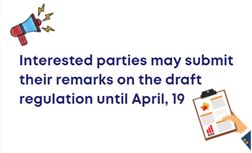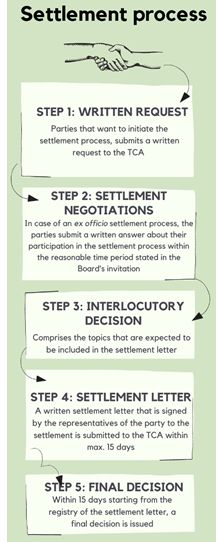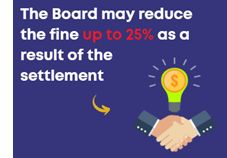
The Draft Regulation on Settlement Procedure for Investigations on Restrictive Agreements, Concerted Practices, Decisions and Abuse of Dominance ("Draft Regulation") has been opened for public review until April 19 at the Turkish Competition Authority's ("TCA") website on March 19, 2020.
The settlement procedure, which aims to raise procedural efficiency, has been introduced to the Turkish competition law regime for the first time via the amendments to the Competition Act No. 4054 ("Act") on June 24th, 2020.
As per the amendments in Article 43 of the Act, once the investigation is initiated, the Turkish Competition Board ("Board") may, on the request of the parties or on its own initiative, engage in the settlement procedure. The Act also stipulates that the enforcement principles of the settlement procedure would be established via the relevant secondary legislation.
In general, the settlement procedure is an option for the investigated parties after which the Board may cease the investigation with a reduction in the possible administrative fines. Since the settlement is an option, the parties may decline the Board's invitation and not participate in the settlement process. In such a case, as stipulated under the Draft Regulation, the settlement procedure will only proceed for the parties that either accepted the Board's invitation or applied to the Board for settlement and get accepted. For those parties who did not accept the Board's settlement invitation, the investigation will proceed in its natural order.
What does the Draft Regulation bring?

Pursuant to the Draft Regulation, undertakings or associations of undertakings that are subject to an ongoing investigation may apply to the Board for settlement. The Board may also send invitations to the parties on an ex officio basis and initiate the settlement negotiations. Regarding the settlement decision, the Board is entitled to certain discretion that when the Board replies to the requests for settlement, it may assess the procedural economy benefits, the existence of the infringement, and the scope of the infringement.
The Board is entitled to reduce the prospective administrative fine by up to twenty-five percent. The Board has discretion over determining the reduction rate.
How the settlement process will proceed?
The first step to be taken by the parties applying for a settlement is to submit a written request for settlement to the TCA. Upon this request, the Board may either (i) decline the request, or (ii) accept the request or (iii) invite other parties, if exist, to the settlement.
The second step of the process is the settlement negotiations. If the Board accepts the parties' request for settlements, the settlement negotiations will proceed. In the case of ex officio settlement processes, the parties must submit a written answer on whether they want to participate in the settlement process within the reasonable time period stated in the Board's invitation. At this point, the Draft Regulation does not provide a possibility to request additional time after the end of this "reasonable" time provided by the Board. Therefore, it is interpreted as the time period provided by the Board is a peremptory term.
After the settlement negotiations, the Board will issue an interlocutory decision. This decision comprises the issues expected to be included in the settlement letter. It is specified that, in general, this decision, which can be interpreted as a draft of the final decision, will comprise of the following: (i) the scope, duration, and nature of the infringement, (ii) maximum and minimum rates of calculated administrative fines, (iii) applicable reduction rates after the settlement, (iv) applicable reduction rates within the scope of the active cooperation, (v) maximum and minimum rates of administrative fines to be imposed, (vi) fifteen days of peremptory term to submit the settlement letter to the TCA, and (vii) that unless the settlement letter is submitted within time, the Board will not be bound by the issues stated in the decision.
The next step is the parties' submission of a written settlement letter that is signed by the representatives of the party to the settlement. Parties that accept the issues stated in the interlocutory decision must submit a settlement letter within the time provided by the Board. In the event of an oral declaration by the parties, the officer in charge will render a written letter to be confirmed by the representatives of the parties.
The time period provided by the Board to submit this settlement letter is peremptory, hence there is no room for an additional time request. As mentioned above, this time period cannot exceed fifteen days. In a similar vein, it is stipulated that the notifications made after the end of this period will not be taken into consideration.
The last step of the settlement process is the final decision of the Board. Within fifteen days from the submission of the settlement letter to the TCA's registry, the Board will cease the investigation with a final decision comprising the determination of the infringement and the administrative fines. Additionally in this decision, as well as the items included in a final decision of the Board after an ordinary investigation, also the issues stated in the interlocutory decision will be included.
Until when a request for settlement can be submitted?
As provided in the Act and the Draft Regulation, the settlement process can only be initiated "after the initiation of the investigation". Therefore, it is not possible to request for settlement at the preliminary investigation. Therefore, it is not possible to request for settlement during a preliminary investigation.
In addition, the settlement process needs to be initiated until
Can the parties recant?
The parties to a settlement can recant until the submission of the settlement letter. After a dully submitted commitment letter, the parties will be deemed to have accepted the infringement. Hence, it will not be possible to recant after the acknowledgment of the infringement.
As per the Draft Regulation, it is not possible to recant the settlement letter that was dully submitted, however, it is not yet clear whether the parties can recant a submission letter when there are irregularities in the settlement letter or during the process.
The rates of administrative fines and reduction

The Draft Regulation lays down that if the maximum rate of the calculated administrative fine exceeds ten percent of the gross revenue of the relevant party, this exceeding rate will be decreased to ten percent of the annual gross revenue, and the reduction will be applied on this rate.
It should be mentioned here that an application within the scope of the Regulation on Active Cooperation1 does not preclude a settlement application. In fact, the settled parties are provided with a total reduction rate of both within the scope of the Regulation on Active Cooperation and the settlement. With this in mind, it is specified that an application for active cooperation can only be made until the settlement letter is submitted to the TCA's registry.
The cessation of the settlement process before completion
The Board may terminate the settlement procedure for certain (or all) parties until the issuance of the final settlement decision if; (i) the Board opines that the expected procedural benefits cannot arise or it is not possible to reach a consensus regarding the existence and the scope of the infringement, (ii) there is a risk of tampering with evidence, or (iii) there is a non-fulfillment of the confidentiality obligation.
What Happens After the Settlement?
As per the Draft Regulation, the parties' participation in the settlement negotiations is not considered as an acknowledgment or acceptance of the alleged infringements.
When the final settlement decision is issued, the parties are deemed to have acknowledged the existence and the scope of the infringement. Within the scope of the Act and the Draft Regulation, in case the process is ceased with a settlement, the parties cannot bring an action before the courts against the administrative fines and the issues included in the settlement letter.
Considering the above, we would like to emphasize that the inclusion of the settlement mechanism, which has long been applied in the European Union ("EU") practice, into the Turkish practice is a positive development. While some fundamental specifications are adopted from the EU practice to a great extent, certain points are still open to improvements to increase the benefits of this system.
One of the first points diverging from the EU practice is the obligatory acceptance of the existence and the scope of the infringement at a very early stage of the settlement. There is a need for legal certainty in terms of which allegation will be accepted by the parties and to what extent the parties will be informed. The current form of this regulation carries the risk of transforming into a "reduction in exchange of confession" case rather than a settlement. When we consider that the "notification" of investigation is only used to "notify" the allegations to the parties and comprehensive information regarding the details of allegations and evidence is provided to the parties with the investigation report, the importance of adequately informing the parties before the settlement decision becomes clearer.
When we review the EU practice from this perspective, we do not encounter any mechanisms obliging the parties to confess or acknowledge at a very early stage. In a similar vein, we consider it positive that the EU practice enables the parties to be informed about the allegations, possible administrative fines, and evidence before the parties give their decision to settle. Moreover, the parties can access other information in the case.
Another topic to provide a more efficient and reliable settlement mechanism is to safeguard the right to defense and procedural fairness. Particularly for the administrative procedures with heavy administrative fines such as competition law, "most fundamental principles and rules of criminal law, which might be called the core" have to be applied2. As it was addressed in the settled case-law of the Turkish Constitutional Court, "the application of fundamental criminal law safeguards in the administrative fines is a must"3. Since the sanctions are still applicable after the settlement is reached, the parties need to be given sufficient opportunities to narrate their true positions. Within the same scope, we believe that the oral hearing mechanism that is one of the most important tools of the investigation process is adaptable in terms of the settlement mechanism.
In sum, we assess that the inclusion of the settlement mechanism into the Turkish practice and the clarifications through the secondary legislation is certainly positive. With this in mind, how these rules will be applied in practice is of great importance. For this reason, we will follow the upcoming developments about the topic in the future.
Footnotes
1. Regulation on Active Cooperation for Detecting Cartels (Active Cooperation/Leniency Regulation) published in the Official Gazette dated 15.02.2009 and numbered 27142.
2. Ulusoy, A.D. Yeni Türk İdare Hukuku, Yetkin Yayınları, Ankara, 2019, p. 452, 453.
3. Ibid.
The content of this article is intended to provide a general guide to the subject matter. Specialist advice should be sought about your specific circumstances.



